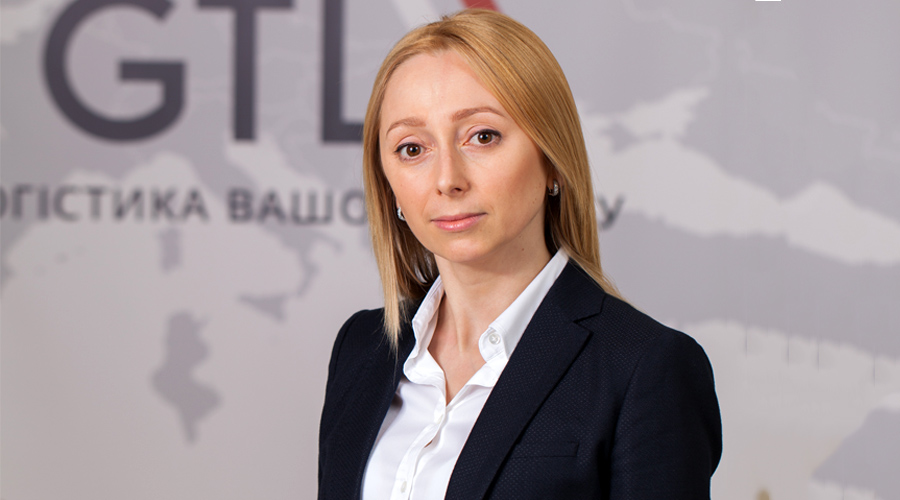
Since 2004, Galtrans Logistics (GTL) has been providing logistics and transportation solutions to clients worldwide. The majority of its services are linked to the automotive sector, with Germany as its top market, but the company also transports goods like food, steel products and textiles. Mariya Mulyava has been the company’s executive director since 2009, after having worked for the European Business Association and Leoni. Here, she explains what makes the company stand out and why logistics in Ukraine is often smoother and more affordable than in other European countries
Could you walk me through the company’s services and main areas of operation?
We are a Ukrainian company, and we are logistics carrier, expedition and customs agency. We deal with all the issues related to logistics. We also have an office in Poland, and we can compare how we run our business in both places. From our experience, running a business in Ukraine is not more difficult than in the EU. We’ve been on the market for 15 years, and around 75 percent of our clients are in the automotive industry. In Western Ukraine, there are many producers of cable harnesses for all the European car producers, so our clients here in Ukraine in the automotive industry are German companies like Leoni and BADER, besides many others from Ukraine and around the world. We also work with other industries, transporting packed foods, steel production, and a lot of Danish companies that are also in Ukraine producing textiles.
What gives Ukraine an advantage in terms of logistics services?
Logistics is a really important sector in Ukraine because we are close to Europe. We see that our clients are satisfied to be here because logistics are not really expensive. For example, if you export from Germany to Poland or from Germany to Ukraine, the price is almost the same. Why? Because European salaries, roads and taxes are all more expensive. If you want to ship from Germany to Hungary or Romania, it’s even more expensive than shipping to Ukraine. It is also much easier to get customs clearance of goods here than in other European countries. The customs clearance procedures in Ukraine over the last few years have become easier than in Poland or Romania. For example, in Ukraine, we are able to bypass customs offices. In Lviv, we have three customs offices, and if you want to send goods from Ukraine to any European country, you don’t have to enter the customs office, but rather just submit the required documents. It’s about the same process as in Germany. It’s the same with imports coming in from Europe: there are declarations and procedures that make it smoother than in other nations. Of course, if the goods have to be controlled, we are informed by mail and the truck has to enter the customs office, but that’s not more than three percent of trucks. There are some goods like food or items under veterinary control, which must go through customs, but usual production – parts, harnesses, furniture, steel products, plastics and so on do not have to enter the customs office at all. They go directly to unloading. These customs procedures are working very well compared to countries like Poland or Romania. The hours of customs clearance in Ukraine are also more flexible. For me, as a carrier, it’s a big advantage because in Ukraine I can unload and load a truck in the same day; in Romania, there’s no way. On top of that, last year, more than 100 small permissions in Ukraine were canceled. Among them were sanitary and hygienic permissions, which almost all the goods imported to Ukraine needed to submit. It cost around $200 and had to be issued once a year. But nevertheless, it was required for everything and now it’s been canceled. Ecological preparations have also been liquidated. Previously, we had to receive certifications that goods such as electrical products were produced to the norms applicable in Ukraine, but that’s no longer the case. This has all allowed us to finish the customs procedures really quickly because we don’t need to receive additional permissions. It is a huge advantage.
In which countries do you operate?
We are transporting from Ukraine to Portugal and in all the countries in Europe. We work with all the large automotive producers like Audi, Mercedes, BMW, Porsche and Mini. In 2017, Germany was our main market. That year in total, we carried out 6,000 international transportations and our turnover was around €6 million; 2017 was a really great year for us – our clients grew, we got more work and increased our performance by 75 percent. It shows that the business is growing.
What would you tell potential investors in Germany about the Lviv region?
I see that our clients in the Lviv region have benefited a lot from being here. That is evident by the fact that they are expanding their businesses and hiring more people every year. The infrastructure, including road conditions, customs offices and getting permissions, has become much easier in recent years. Likewise, starting a business here is really easy. We have a great office that supports investors in our Regional State Administration. It is doing a lot to help each company to enter the market, find land plots, set up communications, and more. Companies are satisfied, growing and making plans for the long-term future.